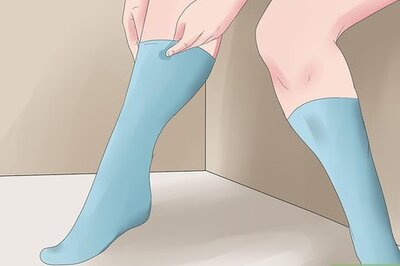
views
Postpartum physical recovery is a pivotal aspect of a woman’s health after childbirth, and seeking the guidance of a physiatrist can play a vital role in ensuring a smooth and effective recovery process. Physiatrists are medical doctors specializing in physical medicine and rehabilitation, with a primary focus on optimizing function and enhancing the quality of life.
Following childbirth, women may encounter various physical challenges, including musculoskeletal issues, pelvic floor dysfunction, and overall fatigue. A physiatrist can thoroughly assess and address these concerns, providing personalized treatment plans to facilitate the recovery process. Pelvic floor rehabilitation is a common area of focus, as childbirth can impact the strength and function of these muscles.
Physiatrists collaborate closely with other healthcare professionals, such as physical therapists, to craft comprehensive rehabilitation programs tailored to individual needs. This may involve exercises to strengthen core muscles, improve posture, and address any lingering pain or discomfort. Additionally, physiatrists offer guidance on proper body mechanics during activities like lifting and carrying the baby, promoting long-term musculoskeletal health.
Emotional well-being is an integral part of postpartum recovery, and physiatrists adopt a holistic approach to their patients’ health. They address mental health concerns by providing support and resources to manage stress, anxiety, or postpartum depression.
Regular follow-up appointments with a physiatrist allow for ongoing monitoring of progress and the opportunity to make any necessary adjustments to the treatment plan. Through a collaborative and multidisciplinary approach, physiatrists contribute significantly to a woman’s overall postpartum well-being, supporting her journey to regain physical function and resilience.
Here are some helpful tips to navigate the postpartum period and promote a smoother healing process:
- Prioritize rest and sleep. Adequate rest is essential for recovery. While challenging with a newborn, try to nap when the baby sleeps and enlist the help of family and friends to share responsibilities.
- Maintain a well-balanced diet and stay hydrated. Nutrient-rich foods aid in healing and provide the energy needed for the demands of early motherhood.
- Engage in light, gentle exercises as advised by doctors. Activities like walking can improve circulation and mood, but it is crucial to start slowly and gradually increase intensity.
- Contribute to the recovery of pelvic muscle strength with exercises such as Kegels. Consult with a physiatrist for guidance on appropriate exercises for your specific needs.
- Address any lingering pain or discomfort with the guidance of your doctor. They can recommend safe pain management strategies, including medication or alternative therapies.
- Pay attention to your posture, especially when feeding or carrying your baby. Maintaining good posture can alleviate strain on your muscles and promote a faster recovery.
- Recognize and give importance to your emotional well-being. If necessary, reach out for support from friends, family, or a psychologist.
- Attend follow-up appointments with your healthcare provider or physiatrist to monitor recovery progress and discuss any concerns or adjustments to your treatment plan.
Involving a physiatrist in postpartum physical recovery enhances the comprehensive care women receive after childbirth. Their expertise in physical medicine and rehabilitation contributes to a holistic approach that addresses both the physical and emotional aspects of recovery, promoting optimal health and function for new mothers.
















Comments
0 comment